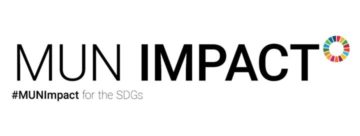BY MEENAKSHI MARIAPPAN, STAFF REPORTER
The pandemic has served as a catalyst for the need for efficient remote learning and working, with a transparent surge in demand for the same. A project that has roots to concerns raised by a student in Yemen, our speaker Ryan Laverty set out to make learning more accessible to those that lack access to it, and began running a company whilst a student learning design at the time years ago. In this session, Laverty provides insight into how his team at Arist is working to make learning more accessible via text message and Whatsapp to those in every corner of the globe who need it most.
The three prominent options for learning are video, e-learning modules, and in-person training. Laverty pushed forth the question: “What if we send materials over text?” With over 75% of people using mobile phones, the challenge is really this: “How do you teach something meaningful over such small soundbytes?”
Based on analytics and research that “spaced learning works,” Laverty and his team at Arist started to put together pieces of what the learning module should like, with aims of designing a working model “that’s accessible, but also works.” Initially, the project began with texting interested students about entrepreneurship, and public speaking tips. They soon arrived at a final product of 2 screen length, 1200 character messaging method to explain concepts followed by daily projects, complete with emojis and skipped lines to break up learning and deliver learning modules as “bite-sized engagements,” instead of a “chunk of text.” One example of their work includes a COVID-19 Health project in Tanzania, which involved the dissemination of sanitation and hygiene education and awareness over text messages. An interesting way students were assessed by being asked to send a message back each time they washed their hands. This showed immediate results, confirming that “it can completely change methods of teaching, and it changes the access someone can have to learning.”
Currently, Laverty and his team’s work also includes training Fortune 500 organisations and non-profits in the United States, relying on profit partners to reach different groups. Their work also stretches globally across 3-4 dozen countries and regions, including entrepreneurship education in Tanzania and Kenya in Sub Saharan Africa, India, Europe and South America, to financial literacy training in Costa RIca and Ecuador. They have plans of expanding to other messaging apps, such as Line, WeChat, and Slack, with a vision of “getting the acceptance of remote learning to the world.”
In Laverty’s words, “the three major steps that will define the next decade are work, train, and earn.” With TikTok and Twitter, “the atomic unit of learning is getting much smaller. Learning should happen on the communication we already use. It took a lot of time and effort, but we believe we’ve designed a better way for anyone anywhere to learn. The future of learning isn’t about making things smaller. It’s about making learning intentional and more human-centric.”
Watch the complete session at https://youtu.be/eveJpgTJcHc. Want to learn more about the work Arist is spearheading? Head over to https://www.arist.co for more information.
